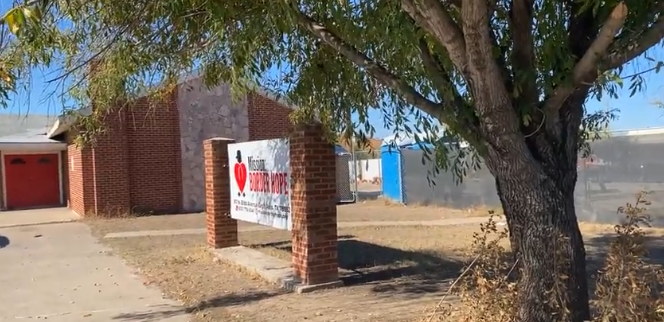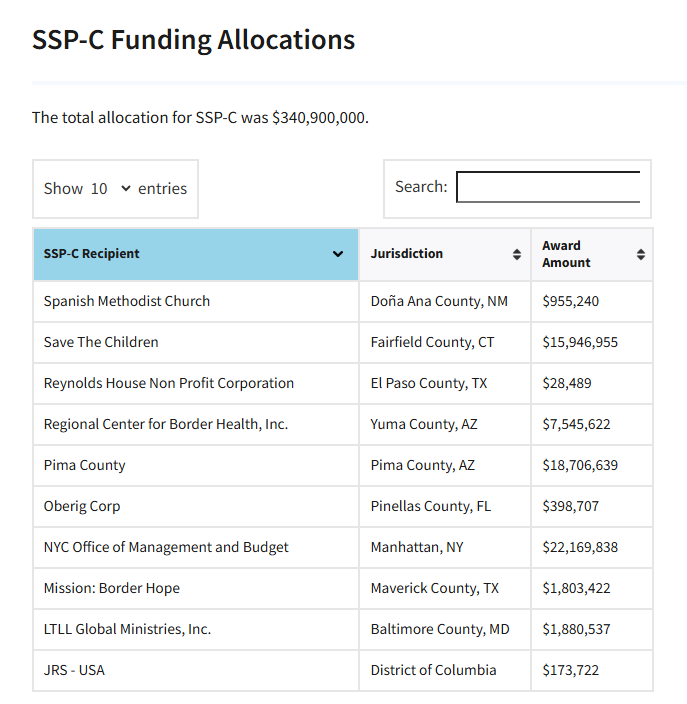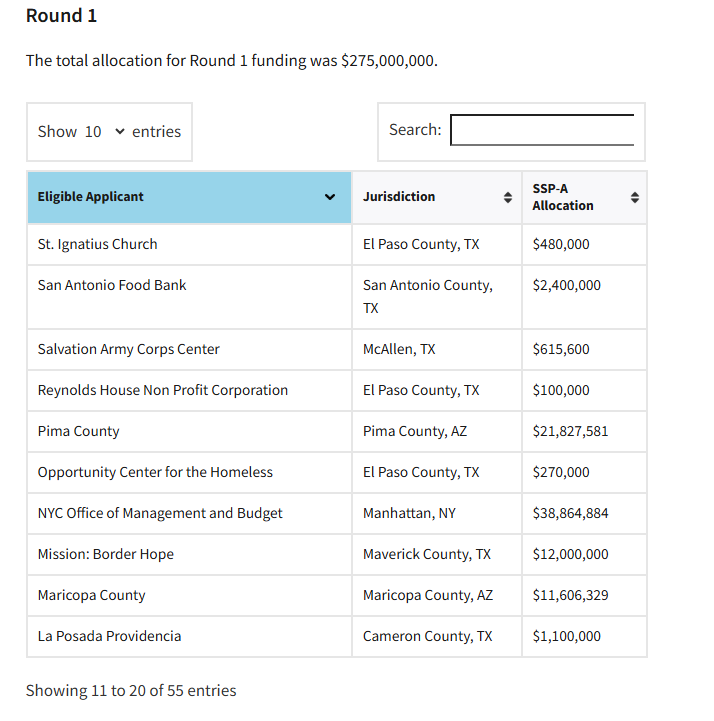Physical Address
304 North Cardinal St.
Dorchester Center, MA 02124
Physical Address
304 North Cardinal St.
Dorchester Center, MA 02124

Mission: Border Hope, a nonprofit organization based in Eagle Pass, Texas, has been awarded $13.8 million in federal funding to enhance its services for noncitizen migrants released from Department of Homeland Security (DHS) custody. This grant, part of the Federal Emergency Management Agency’s (FEMA) Shelter and Services Program (SSP) for Fiscal Year 2024, aims to support entities providing essential assistance to migrants.
The SSP, administered by FEMA in partnership with U.S. Customs and Border Protection (CBP), allocates financial support to non-federal entities—including state and local governments and nonprofit organizations—that offer shelter and related services to migrants post-release from DHS custody. In FY 2024, Congress appropriated $650 million for the SSP, divided into two primary funding streams: SSP-Allocated (SSP-A) and SSP-Competitive (SSP-C).
Mission: Border Hope received $12 million through SSP-A funding, which provides direct allocations to pre-identified eligible entities based on factors such as migrant arrival data and demonstrated need. Additionally, the organization secured $1.8 million through the SSP-C competitive grant process, enabling them to further expand their capacity to assist migrants.
The awarded funds are designated for a range of essential services to support migrants during their transition. These services include providing temporary housing facilities, supplying meals and addressing nutritional needs, assisting with travel arrangements from DHS facilities to shelters or onward to final destinations, offering basic medical services and health screenings, distributing essential hygiene products, and covering staffing costs necessary to manage and deliver these services.


By effectively utilizing these funds, Mission: Border Hope aims to enhance its capacity to deliver critical support to migrants, ensuring their basic needs are met and facilitating their integration into communities.
The allocation of substantial FEMA funding to Mission: Border Hope underscores the federal government’s commitment to supporting organizations that provide essential services to migrants. While addressing the immediate needs of migrants is crucial, it’s imperative to consider the broader implications of such funding. The significant increase in FEMA’s spending on migrant assistance, which has risen dramatically from $30 million in 2019 to over $640 million in 2024, raises questions about resource allocation and long-term sustainability. Ensuring that taxpayer funds are used efficiently and effectively, while balancing the needs of both migrant populations and local communities, is a complex challenge that requires careful oversight and transparent policymaking.
For more detailed information on the Shelter and Services Program and its funding allocations, you can visit FEMA’s official page.
As members of the Eagle Pass community, it’s important to reflect on the following questions: How can we ensure that the influx of federal funds is managed transparently and effectively to benefit both migrants and local residents? What measures can be taken to address potential strains on local infrastructure and services resulting from increased migrant assistance? How can we balance immediate humanitarian aid with long-term solutions that promote self-sufficiency and integration for migrants?
If you’re interested in supporting or learning more about Mission: Border Hope’s initiatives, consider the following actions: offer your time and skills to assist in various programs and services, contribute financially or provide in-kind donations to support ongoing efforts, and attend local forums and discussions to stay informed and voice your perspectives on migrant assistance programs.
By engaging in these conversations and activities, we can collectively navigate the complexities of migrant assistance and ensure that our community remains compassionate, resilient, and well-informed.